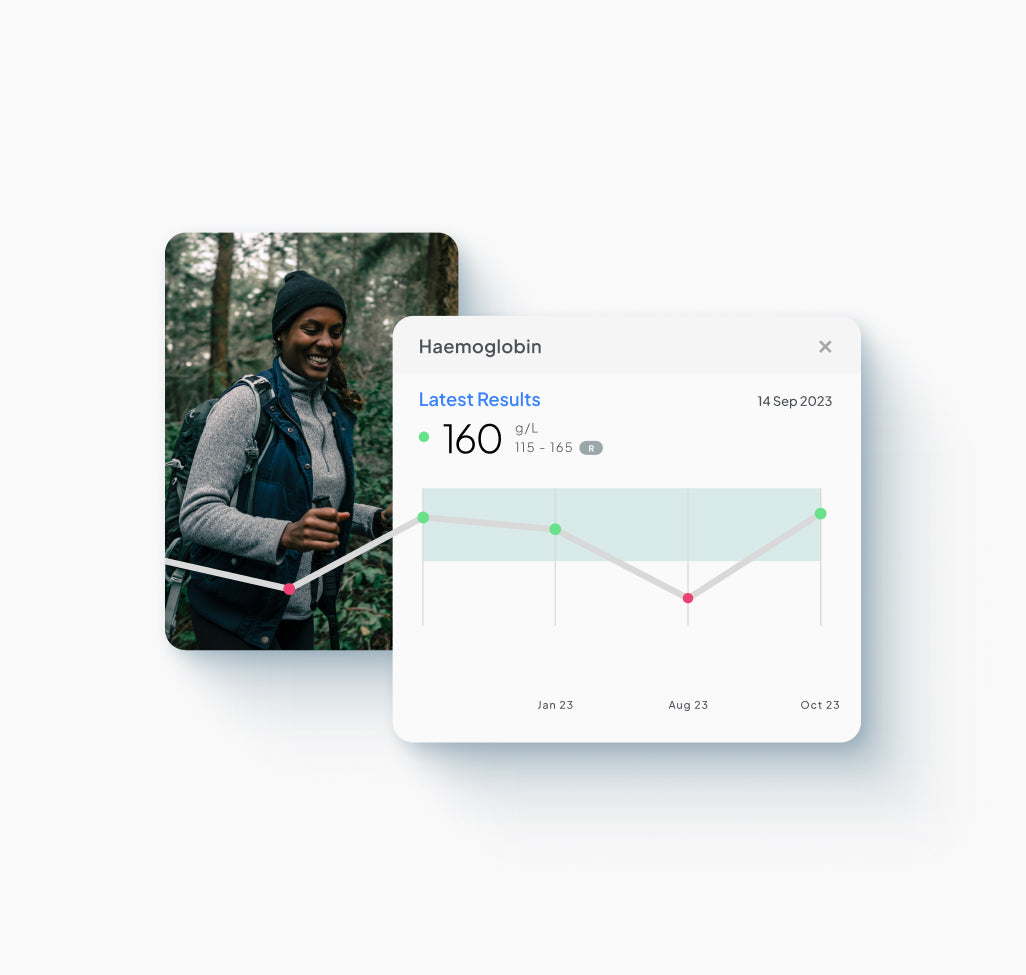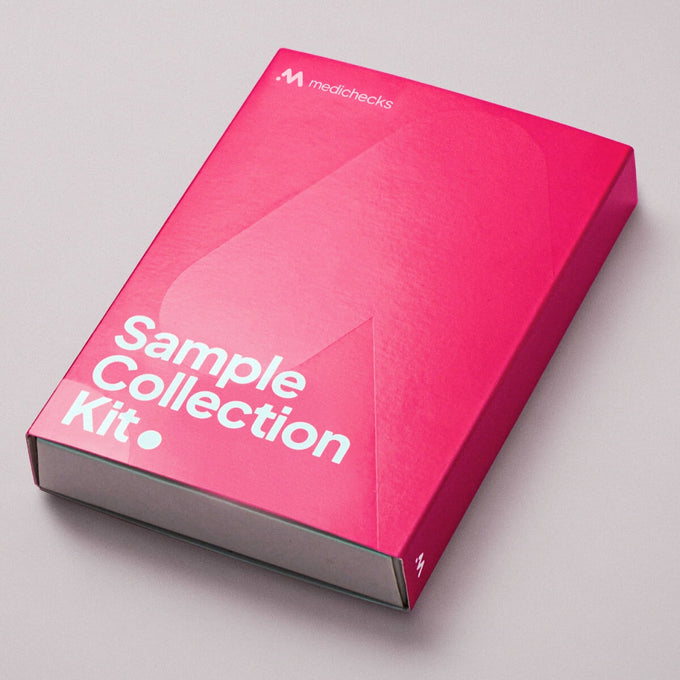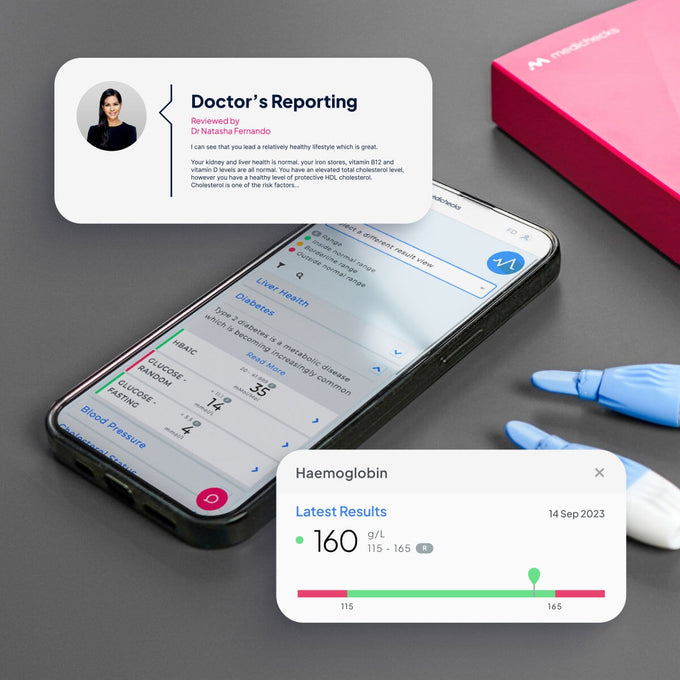Biomarker table
Vitamins
Vitamin A
Learn more
How to prepare for your test
Prepare for your Vitamin A (Retinol) Blood Test by following these instructions. Do not eat or drink anything other than water for 12 hours prior to your test. If you take medication then you are allowed to take it as you would normally. Take your sample at least 24 hours after any vitamin or mineral supplements.

How it works
Your personalised, actionable health results are only a few clicks away. Order your test, take and post your sample, then view your results online with our doctors' comments.

Track, improve, and monitor your health over time
MyMedichecks is your personal online dashboard where you can view your results, access clear and simple explanations about individual health markers, monitor changes in your health, and securely store information about your medical history, lifestyle, and vital statistics.
FAQs
Which foods are highest in vitamin A?
Cheese, eggs, lamb and beef liver, and oily fish (such as mackerel, salmon and trout) are all great sources of active vitamin A. Coloured fruit and vegetables, including spinach, carrots, sweet potatoes, and mango are all good sources of beta-carotene. The NHS recommends that for adults (19-64 years), 0.7 mg of vitamin A should be consumed per day for men and 0.6 mg of vitamin A per day for women.
Is a vitamin A deficiency common?
In the UK, having a vitamin A deficiency is rare but more common in developing countries. However, people who suffer from illnesses that affect how food is absorbed from the gut, including coeliac disease, Crohn's disease and cystic fibrosis, are at a greater risk of developing vitamin A deficiency.
What is vitamin A?
Vitamin A comes in two main forms - active vitamin A and beta-carotene. Active vitamin A or retinol comes from animal-derived foods and can be used directly by the body. In contrast, beta-carotene or provitamin A comes from fruits and vegetables in the form of carotenoids, which the body converts to retinol.











